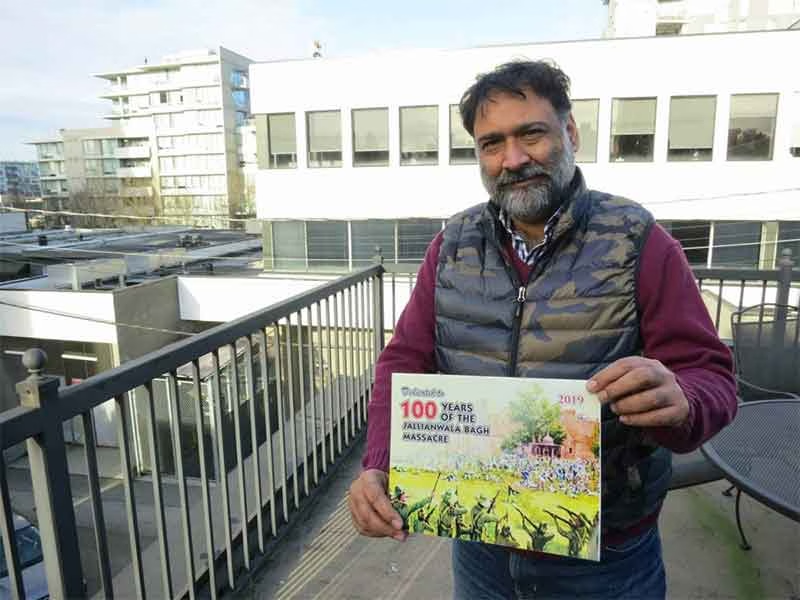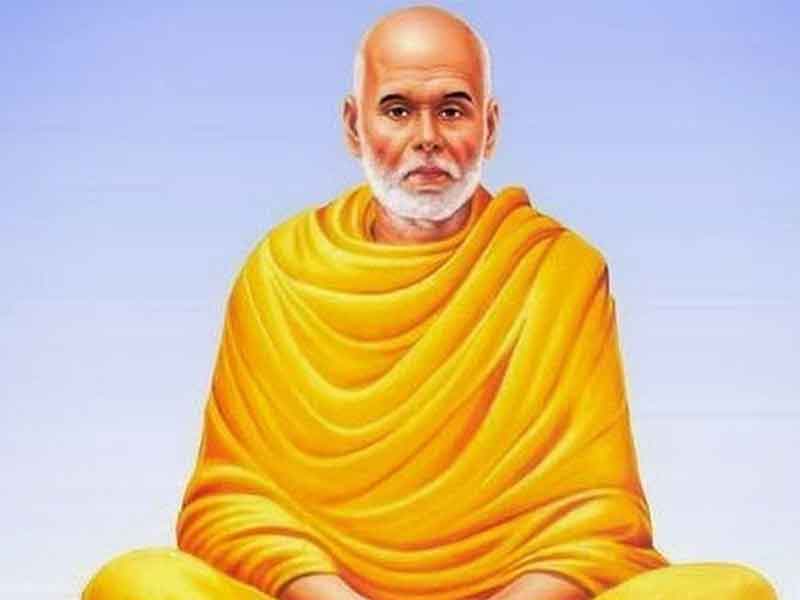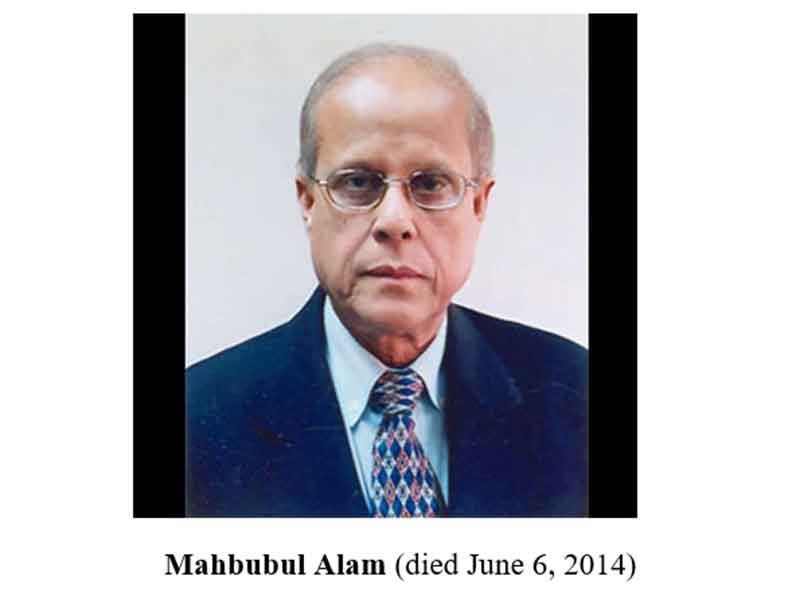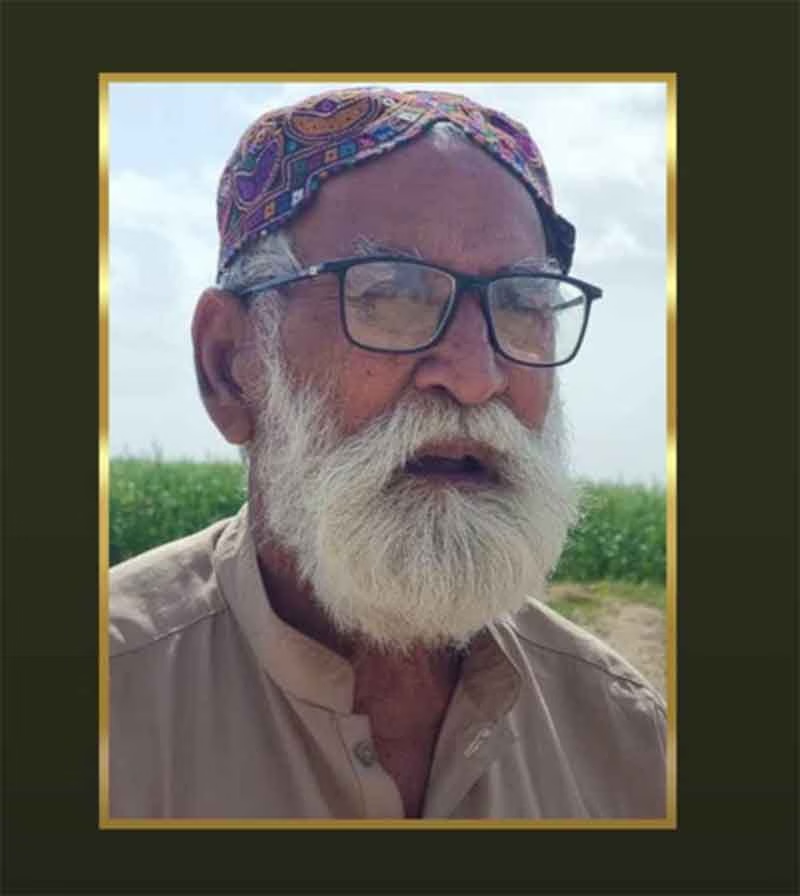
Sagunabai Kshirsagar, the original inspiration behind Jyotiba and Savitribai Phule: Today, on the day of women’s emancipation 175 years ago, Sagunabai Kshirsagar had the greatest contribution in shaping the lives of Jyotiba Phule and Savitribai Phule.
Jyotiba Phule’s mother died in his childhood and Govindrao Jyotiba’s father did not remarry for his son. His closest relative was Sagunabai Kshirsagar, who lived in Dhankawadi near Naigaon in Satara district. She was a child widow, so Sagunabai played the role of a mother who raised Jyotiba Phule. Today we all know the name and work of Jyotiba and Savitribai.
Being a child widow, Sagunabai Kshirsagar used to help in household chores in the house of Mr. John, a Christian missionary in Pune. Mr. John kept some orphan children with him, so Sagunabai also used to help him. And because of this she learned to speak in English. Govindrao Phule requested Sagunabai to take care of his son Jyoti as well. Sagunabai asked Mr. John for permission for the same, which he happily gave, and Sagunabai raised Jyoti like her own son. Living in a missionary’s house, Jyoti got the opportunity to practice speaking English from the very beginning, and especially to study everything from working on time to discipline and working with a spirit of service.
But Govindrao’s Brahmin clerk whispered in his ears that the irreligious act of sending Jyoti to study should be stopped immediately, otherwise your seven generations will have to go to hell.” And after listening to him, Govindrao took Jyotiba out of school. But Sagunabai asked an influential British officer Legit and Gaffar Beg to convince Govindrao Phule. And Govindrao agreed. Otherwise Jyotiba Phule would have been deprived of completing his studies. Jyotiba was married to nine-year-old Savitribai of Naigaon, known to her, in 1840, under the supervision of Sagunabai. And he got to study at home, especially with the help of Jyotiba and Sagunabai. This would be the biggest achievement of Jyotiba Phule’s personal life. Due to which he got the opportunity to study as well as the inspiration to work against the social evils of the time. And Sagunabai also took the help of Mr. John to give Jyoti a good education. Sagunabai played a very big role in shaping the life of Jyoti-Savitribai Phule. And that is why Savitribai wrote a poem named “Meri Pyari Aaun” in her poetry collection named Bavankashi Subodh Ratnakar. And said that “Our Aaun is a tireless worker and an embodiment of kindness. Even the sea is nothing in front of her, she has such a big heart. And even the sky is small in front of her. She is the god of our studies. She will always have a place in our hearts.”
Similarly, Jyotiba Phule has written in the offering letter of his book “Nirmik ki Khoj” that “Aaun- Maa you are the embodiment of truth, because of you introducing me to human values, I am able to love other people and children today, so I am dedicating this book to you”. Such Sagunabai Kshirsagar, like the mother of Jyotiba and Savitribai Phule, Aaun passed away from this world on 6 July 1854. But Jyotiba Phule and Savitribai Phule continued to run the work started by her especially for women and Shudras. This is the true tribute they have given to Sagunabai Kshirsagar in the form of this work.
The Peshwai was over, but the evils of social discrimination were not shaken. They continued as usual. The practice of Shudras walking with a pot around their neck and a broom tied behind their waist was still in practice. Similarly, one had to wait for hours for public water because Shudras were forbidden to even touch a well or a pond. Shudras would get water only when an upper caste person would give them water. Keeping this in mind, Jyotiba Phule decided to open the water tank of his own house for everyone. In the field of education, women and Shudras were forbidden from even looking at the letters or pronouncing them. The first schools were started in 1848 with the joint efforts of Jyotiba and Savitribai, Sagunabai Kshirsagar and Fatima Sheikh. However, Sagunabai Kshirsagar herself started the first school in Maharwada in 1846. But due to the opposition of the people of the so-called upper castes, it had to be closed after a few months. Then after two years, on 25 December 1848, Jyotiba gave a very effective speech exposing the conspiracy of the Brahmins. Impressed by this, a Brahmin named Bhide announced to give his house to run the school. And thus, the first school in the history of India was started for women and Shudras in Bhidewada, Pune. For this, one has to appreciate the indomitable courage and dedication of the three great women, Savitribai, Sagunabai and Fatima Sheikh, who endured the attacks of cow dung, mud and stones by the people of the upper caste on their way to the school every day. She used to carry a separate sari in her bag and before starting teaching in the school, changing the sari filled with dirt and getting ready to complete the work of teaching, even imagining it gives goosebumps. How courageous these three women must be? It is not an easy task for them to step out of their homes, face abusive words, cow dung, mud and pebbles on the streets, change their sarees that they had brought with them to school and prepare their own mindset to be active in their studies. It is impossible for them to do this without indomitable courage and dedication.
Today, the number of women is visible in every field of life, starting from the current President. But it was because of people like Sagunabai Kshirsagar, Savitribai Phule and Fatima Sheikh and Jyotiba Phule and Usman Sheikh who supported them, and Bhide who donated his own house for the first school, that education for women and Shudras started 175 years ago. And despite that, some people, even today, try to glorify Manusmriti and it makes one feel pity on their mentality.
There is no provision of any tradition of service in Hindu religion. If someone is suffering today, then he is suffering the consequences of his deeds of the previous birth. Therefore, he should be allowed to remain like that. Because according to the ‘Karma Vipaak Siddhant’, only after he atones for all this in this birth, he can get salvation in the next birth. And good days will come. Mahatma Jyotiba Phule was the first to attack this myth. And in the same series, but born some time (1889) after the death of Mahatma Jyotiba Phule (1891), Dr. Bhimrao Ambedkar ji had said that Dalit women and people of all backward castes were bound in the shackles of mental slavery due to the principle of ‘Karma Vipaak’ that had been sitting in their minds for thousands of years. Dr. Babasaheb Ambedkar ji has done the historic work of breaking it intellectually. Otherwise, there would not have been the opportunity to celebrate Women’s Liberation Day today. And no Draupadi Murmuji can even imagine nominating a Hindutva hypocrite as the President of this so-called ‘Hindu Nation’. This has to be done only and only to secure the votes of a group of Dalits, Adivasis, backward and women communities. Is this what our parliamentary politics demands? The BJP’s political manipulations in North East India are a recent example of this.
There is no mention of service in the thousands of years old Hindu civilization. All our Shankaracharyas roam around the country with just their throne and golden staff. But there is no tradition of service in anyone. Swami Vivekananda went to America only because he established the ‘Ramakrishna Mission’ after seeing the service work of the Christian missionaries there. Before that, there is no reference in Sanatan Hindu Dharma of any service work done by the followers of Hindu religion other than personal spiritual practice. And perhaps if Mahatma Gandhi had not lived in South Africa for 22 years, then there would have been no possibility of his journey from Mohan to Mahatma.
In Jyoti’s early life, due to Sagunabai, she got the opportunity to serve Mr. John and get English education. And Jyoti’s journey of becoming Mahatma Jyotiba Phule has begun. From Ishwar Chandra Vidyasagar to Raja Ram Mohan Roy, all social reformers have been prepared only after English education. And two important social reformers of Maharashtra, Gopal Ganesh Agarkar and Vishnu Shastri Chiplunkar used to compare English education to tigress’ milk. In fact, the movement of social reform in India started only after the British came to India.
There are many glories of India’s past. But in the field of modern society and knowledge-science, mainly after the discovery of steam power, the industrial revolution in European countries as well as the new discoveries in the field of science have helped a lot in creating the role of Renoasa. And apart from singing the Powadas of our past, we consider it our religious duty to treat women, Shudras and Atishudras inhumanly. We have been behaving like this for centuries. And despite that, we are raising slogans like “Say with pride that we are Hindus”.
It is because of Sagunabai that Jyoti got married to a girl like Savitribai. And Sagunabai has been the inspiration behind the education of both of them. I keep wondering, “How far is it right to ignore people like Sagunabai Kshirsagar who played an important role because of the lack of proper history writing in our country?”
Subscribe to Our Newsletter
Get the latest CounterCurrents updates delivered straight to your inbox.
Because I always felt that after the defeat of Peshwa in the Bhima Koregaon battle in 1818, within nine years (1827) Jyotiba Phule was born. And as per the proverb, “The string was burnt but the strength was not lost”, I was curious about the reasons behind such a big social revolution in a simple farmer family, a boy named Jyoti. I have presented in this book in my own style after reading what Pamela Sardar has written in English about Sagunabai Kshirsagar.
A FORGOTTEN LIBERATOR, THE LIFE AND STRUGGLE OF SAVITRIBAI PHULE – EDITED BY – BRAJ RANJAN MANI & PAMELA SARDAR, MOUNTAIN PEAK, NEW DELHI, PUBLISH
Dr Suresh Khairnar is Ex. President of Rashtra Sewa Dal















































